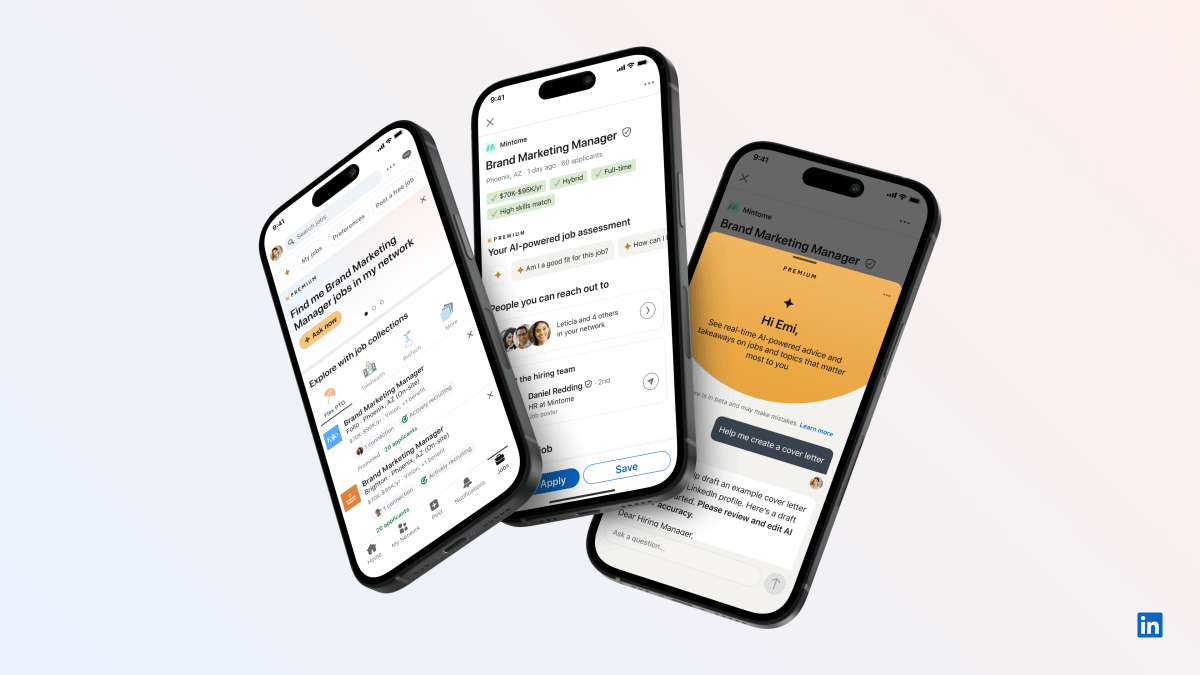The technological landscape is currently dominated by a single force: artificial intelligence. As society continues to embrace this new frontier, LinkedIn has unveiled a plethora of AI-driven services in an effort to attract more users and enhance overall usage.
“We’re placing a big bet on AI and how it can be woven into the LinkedIn experience,” stated Tomer Cohen, LinkedIn’s Head of Product, in an interview with TechCrunch.
- A tool to assist in job searches, complete with the ability to create a tailored application with cover letter included.
- A feature to surface relevant learning material, mostly surrounding the topic of AI, of course.
- An improved search function that will allow users to find what they need more quickly and efficiently.
- Premium subscribers will have access to personalized coaching from renowned experts in the industry, powered by AI.
- The addition of more tools for marketers and enhanced company pages for small businesses.
While LinkedIn continues to innovate and integrate AI into its platform, it’s important to note that this is not the company’s first foray into this territory. In fact, AI has been a driving force behind many of its products since its inception in 2007. From connecting users, to building trust and ensuring safety, AI has played a crucial role in LinkedIn’s success.
However, LinkedIn’s focus on AI also highlights a larger trend in the technology world: the growing use and potential of AI-powered tools for everyday tasks. As more companies invest in this technology, we are seeing great advancements and innovations that have the potential to shape the future.
Fortunately for LinkedIn, it has the support of Microsoft, which holds a 49% stake in OpenAI, and has its own strong AI initiatives. This allows LinkedIn to focus on leveraging AI for its own purposes rather than feeling the pressure to invest in or lead the expanding AI market.
One area where AI is already making a significant impact on the platform is job searching and applications. With new conversational prompts, users can now easily find relevant job postings. And once they have found a job they’re interested in, AI can assist in generating a cover letter and evaluating their resume and other work to optimize their chances of securing the position.
LinkedIn has also noticed a surge in interest for AI-related learning material on its video-based learning platform. To cater to this demand, it has not only boosted its search algorithms, but is also offering personalized coaching from industry experts to Premium subscribers.
In addition to job searching and learning, LinkedIn is also harnessing AI for its search function. As the platform has grown, this has become a neglected but necessary area of improvement. Expect to see more conversational search options in the near future to enhance the overall user experience.
As LinkedIn continues to evolve and embrace AI, it is clear that this technology is playing a central role in shaping the future of the platform and the wider technological landscape. And with the support of Microsoft and its own technological advancements, LinkedIn is in a prime position to lead the way in this exciting and constantly evolving field.









I loved as much as you will receive carried out right here The sketch is attractive your authored material stylish nonetheless you command get got an impatience over that you wish be delivering the following unwell unquestionably come more formerly again since exactly the same nearly a lot often inside case you shield this hike
hiI like your writing so much share we be in contact more approximately your article on AOL I need a specialist in this area to resolve my problem Maybe that is you Looking ahead to see you
Keep up the fantastic work!
Keep up the fantastic work! Kalorifer Sobası odun, kömür, pelet gibi yakıtlarla çalışan ve ısıtma işlevi gören bir soba türüdür. Kalorifer Sobası içindeki yakıtın yanmasıyla oluşan ısıyı doğrudan çevresine yayar ve aynı zamanda suyun ısınmasını sağlar.